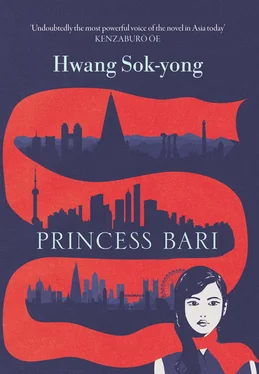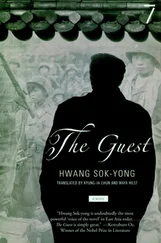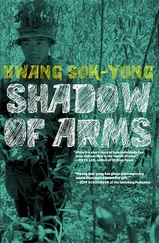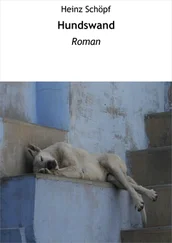Oh, I almost forgot about the people who lived on the third floor. I’d thought that the Chinese chef, the Filipino janitor and I were the only East Asian faces in the building, but up on the third floor on the right-hand side was a married couple from Thailand who were there as students. An elderly Bulgarian couple lived across from them. I think that about covers it as far as our building and my world were concerned. My days mostly followed the same pattern: I woke up at seven, prepared a simple breakfast to eat with Luna, went to English classes that started at nine and studied for three hours, ate a sandwich for lunch at the English school’s snack bar or somewhere else nearby and then headed over to Tongking, where I worked from one in the afternoon to nine o’clock at night. The place where I studied English was referred to as a “visa school”: people attended in order to secure a residence visa. It cost half of what the other schools charged, and most of the students were women working in bars or similar types of establishments. They would show up only half the time, and barely paid attention when they did. Attendance would suddenly skyrocket at the beginning of the week that classes were being assigned, and then it would peter out again. There were a few students who showed up every day without fail, but the teachers didn’t make much of an effort.
At the salon where I worked, Uncle Tan and four of the women who’d learned nail art gave manicures and pedicures to customers, while I was there to give them foot massages either during or after their treatments. Customers who were short on time turned down the massages, but we started to get more and more who came back just for one, after having had a taste of it. On Uncle Tan’s recommendation I taught Luna how to give foot massages as well. It only made sense, as she was helping me to study English. Being roommates with Luna, who’d grown up in England, helped me to pick up the language much faster than when I was in China. Talking to customers all afternoon in the salon was also a big help.
One day I left work first and arrived home only to realize that I’d forgotten to get the key from Luna. I rummaged through my bag and stamped my feet in frustration outside our door; there was nothing else to do but run back up to the first-floor entrance and ring Grandfather Abdul’s doorbell. His voice came over the intercom, asking: “Who’s there?” I told him I was Bari from the basement, and that I’d forgotten my key. The door opened and I headed up the stairs. He was standing outside his door, watching me from over his reading glasses.
“Come on in,” he said.
When I stepped inside I saw a man sitting in the living room. He stood up to greet me. He was very tall, almost as tall as the floor lamp shining up at the ceiling, but it wasn’t just his height that was imposing. He also had broad shoulders and long arms. His curly hair was cropped short, and his large eyes were open wide in his brown face, the whites showing around the irises. At first I was too afraid to look directly at him. Later I found out that he’d played cricket when he was in his teens, at school.
“Rest here for a bit,” Grandfather Abdul said. “When Luna gets home, she can let you in, right?”
“Yes. Thank you, sir.”
“You probably haven’t eaten yet. Would you like a piece of pie?”
I was too afraid to sit down in front of the strange giant, so I stood there timidly and said: “No, thank you.”
“Oh, this is my grandson, Ali.”
Ali stooped from the waist and extended his big bear paw of a hand to me.
“Pleasure to meet you.”
His voice was deep and husky. I put my hand out too. To my surprise and relief, Ali grasped the tips of my fingers lightly and then quickly released them. I sat across from him. Each time our eyes met, he grinned at me. His smile, with those big, even teeth of his, was so friendly that I relaxed and began to smile back.
“What kind of work do you do?” Ali asked.
“I work at a nail salon. What about you?”
Grandfather Abdul placed a slice of the pie that he’d warmed in the oven on a plate and set it in front of me.
“Ali drives a minicab,” he said.
I didn’t know what that meant, so they explained that it was not an officially licensed taxi, but a private car hire. Ali was paid by the hour to drive one of several cars owned by the person who ran the company. He didn’t own his own cab, and he wasn’t officially employed. Ali mostly worked the night shift. I didn’t know what to say about that, so I asked him: “You’re not working tonight?
Ali glanced at his grandfather before saying: “It’s his birthday tomorrow.”
Grandfather Abdul, who was standing at the sink, let out a hearty laugh.
“I was born so long ago that I can’t even remember the date anymore, but he always remembers for me.”
“Actually, I forgot too. Mum called to remind me,” Ali said with a laugh.
I tucked into the pie and had a cup of tea afterward as well.
“Ali’s parents live in Leeds,” Grandfather Abdul said. “I keep telling him to move in with me, but he’s stubborn.”
Ali just laughed and didn’t say anything back.
“You and Luna should come back tomorrow and eat dinner with us. Have you ever had Punjabi food?”
“No, I haven’t. I’ll let her know.”
“I would invite the other neighbours, but they all live with their families.”
He seemed to feel apologetic about the fact that he was only inviting the two of us. I’d wanted to get to know him better for a while, as he’d made such a nice impression on me, and here I was getting to know his grandson as well.
The following day, as luck would have it, Luna and I were able to leave work an hour earlier than usual; as the salon was closed the day after, Uncle Tan didn’t object to our leaving early. Luna and I stopped at a takeaway place and bought some Malaysian Chinese food. She warned me that Muslims didn’t eat pork, and selected shrimp and chicken dishes as well as vegetable-fried rice made with mushrooms and bamboo shoots. When we got to the apartment building and started walking up the stairs, the smell of cooking wafted down the hall. There were so many different nationalities under one roof that whenever a holiday evening rolled around, the building was filled with all kinds of food smells, though no one ever complained.
We rang the bell, and Grandfather Abdul opened the door. He was wearing his usual long tunic over a pair of shalwar trousers. Luna and I each greeted him by saying, “Happy Birthday, Grandfather!” Ali smiled at us; he was standing at the kitchen sink. The table was already set with big plates stacked with lamb kebabs and chicken curry with green chillies. When we filled some empty plates with the takeaway food we’d brought, Grandfather Abdul’s small table was completely full.
Ali prepared ready-made chapatti by heating it in a dry frying pan. Ali placed the bread in a basket, and the four of us sat around the table. Grandfather Abdul poured chai for everyone. As Muslims didn’t drink alcohol, it seemed we would have to skip the birthday toasts. Before we began eating, Grandfather Abdul said a prayer that began with “Bismillah” . Ali prayed with him. We were so hungry that we ate and ate.
Ali’s parents and younger sister lived in northern England, in Leeds. His father moved to Britain from Pakistan after he turned five, and had grown up in this building, but moved to Leeds for work when he turned twenty. Grandfather Abdul said that back in his home country everyone from grandfather to grandson and grandson’s wife lived under the same roof; he added that it was the only way to maintain close family ties. After dinner we had coffee and sweet almond cookies. I was completely stuffed. Ali blinked his big eyes at me, his eyelashes sweeping up and down, as he told his grandfather: “I’ll be right back. I’m going to walk Bari home.”
Читать дальше












